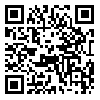Volume 4, Issue 1 (March 2025)
IJER 2025, 4(1): 229-242 |
Back to browse issues page
Download citation:
BibTeX | RIS | EndNote | Medlars | ProCite | Reference Manager | RefWorks
Send citation to:



BibTeX | RIS | EndNote | Medlars | ProCite | Reference Manager | RefWorks
Send citation to:
Vahabi N, Khademi A, Farshbaf Manisefat F. (2025). Comparing the Effectiveness of Acceptance and Commitment Therapy and Self-Regulation Training on Ego Resiliency in Depressed Adolescents. IJER. 4(1), 229-242. doi:10.22034/4.1.229
URL: http://ijer.hormozgan.ac.ir/article-1-347-en.html
URL: http://ijer.hormozgan.ac.ir/article-1-347-en.html
1- PhD student in Psychology, Department of Psychology, Urmia Branch, Islamic Azad University, Urmia, Iran
2- Professor, Department of Psychology, Urmia Branch, Islamic Azad University, Urmia, Iran ,ali.khademi@yahoo.com
3- Assistant Professor, Department of Psychology, Urmia Branch, Islamic Azad University, Urmia, Iran
2- Professor, Department of Psychology, Urmia Branch, Islamic Azad University, Urmia, Iran ,
3- Assistant Professor, Department of Psychology, Urmia Branch, Islamic Azad University, Urmia, Iran
Abstract: (1180 Views)
Objective: The primary aim of this investigation was to evaluate and compare the efficacy of acceptance and commitment therapy with emotional self-regulation therapy in enhancing the ego resiliency of adolescents experiencing depression in Tehran.
Methods: The target population for this research comprised all female ninth-grade students enrolled in high schools within District 5 of Tehran in the year 2024. A total of 45 participants were selected using purposive sampling techniques and subsequently assigned at random to three distinct groups of 15 individuals each (comprising two experimental groups and one control group). Data for the study were gathered utilizing the Block and Kremen Ego Resiliency Scale. The research hypotheses were tested employing multivariate analysis of variance.
Results: The findings indicated that the ego resiliency scores for the groups undergoing emotional self-regulation therapy and acceptance and commitment therapy were significantly superior to those observed in the control group. Furthermore, the ego resiliency scores of the acceptance and commitment therapy group were significantly higher than those of the emotional self-regulation group (p < 0.05).
Conclusions: Consequently, it can be inferred that both acceptance and commitment therapy and emotional self-regulation therapy were effective in enhancing ego resiliency among depressed adolescents, with acceptance and commitment therapy demonstrating a greater degree of effectiveness compared to emotional self-regulation.
Methods: The target population for this research comprised all female ninth-grade students enrolled in high schools within District 5 of Tehran in the year 2024. A total of 45 participants were selected using purposive sampling techniques and subsequently assigned at random to three distinct groups of 15 individuals each (comprising two experimental groups and one control group). Data for the study were gathered utilizing the Block and Kremen Ego Resiliency Scale. The research hypotheses were tested employing multivariate analysis of variance.
Results: The findings indicated that the ego resiliency scores for the groups undergoing emotional self-regulation therapy and acceptance and commitment therapy were significantly superior to those observed in the control group. Furthermore, the ego resiliency scores of the acceptance and commitment therapy group were significantly higher than those of the emotional self-regulation group (p < 0.05).
Conclusions: Consequently, it can be inferred that both acceptance and commitment therapy and emotional self-regulation therapy were effective in enhancing ego resiliency among depressed adolescents, with acceptance and commitment therapy demonstrating a greater degree of effectiveness compared to emotional self-regulation.
Keywords: Ego resiliency, Acceptance and commitment therapy, Emotional self-regulation therapy, Depressed adolescents
Type of Study: Original |
Subject:
Educational Studies
Received: 2024/02/13 | Accepted: 2024/06/14 | Published: 2025/03/1
Received: 2024/02/13 | Accepted: 2024/06/14 | Published: 2025/03/1
Send email to the article author
| Rights and permissions | |
 |
This work is licensed under the Creative Commons - Attribution 4.0 International. |







